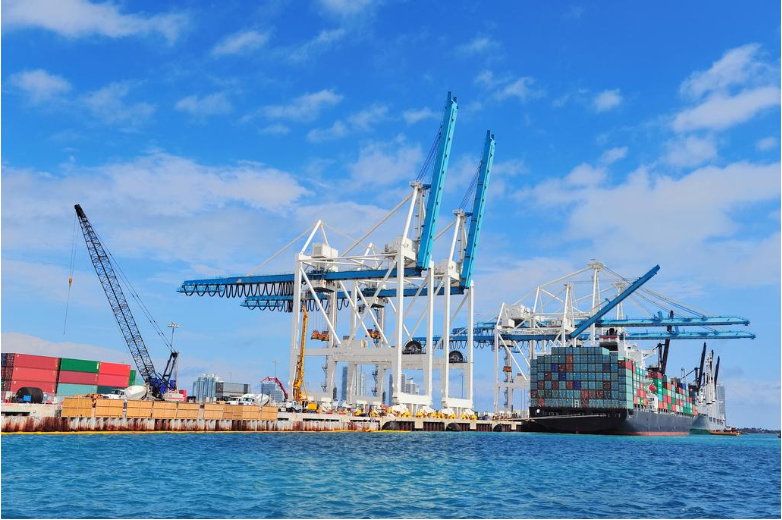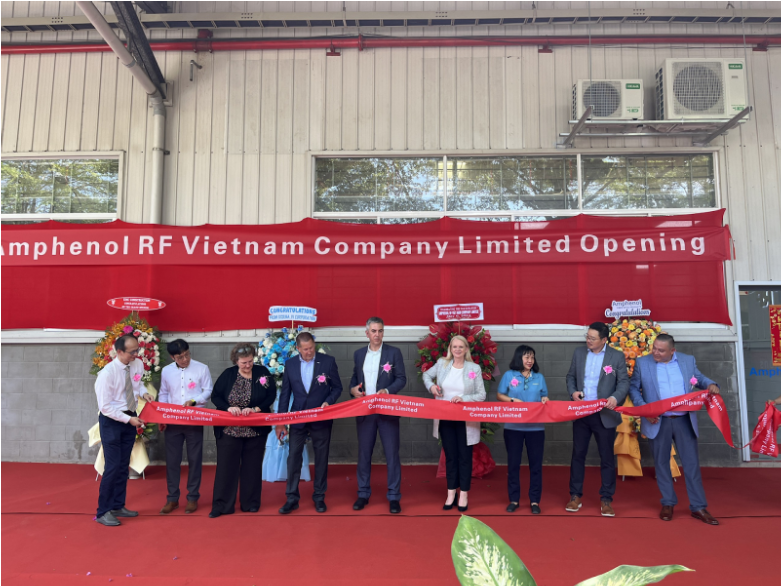Vietnam's service industry attracting attention from foreign companies
Top Reasons Vietnam’s Service Industry Attracting Attention From Foreign Companies
Is Vietnam emerging as a top global hub for investing in services? With rapid economic growth, digital transformation, and strategic trade policies, Vietnam's service industry attracting attention from foreign companies is no surprise. Foreign investors are increasingly drawn to Vietnam's cost-effective workforce, improved infrastructure, and expanding consumer market. As the Vietnam industry shifts toward high-value services, opportunities in sectors like IT, fintech, and digital marketing are multiplying, fueling global interest and setting the stage for sustainable growth.
Overview of Vietnam’s Service Industry and Foreign Interest

Overview of Vietnam’s service industry (Source)
With steady growth and key reforms, Vietnam’s service sector is becoming a hotspot for international investors. The Vietnam industry has become a major attractor for foreign investment.
Rising Contribution of Services to Vietnam’s GDP
In the first quarter of 2025, services saw a 7.7% increase, contributing the largest share—53.74%—to Vietnam’s GDP growth. Wholesale and retail trade grew by 7.47%, transportation and storage rose 9.9%, and accommodation and catering services expanded 9.31%, fueling sector growth. This upward trend underscores the sector's pivotal role in the Vietnam industry.
Key Sectors Attracting Foreign Investment
Foreign investors are increasingly targeting Vietnam's service sectors. In 2024, the financial, banking, and insurance sector attracted US$1.5 billion in new FDI, surpassing manufacturing for the first time. Additionally, tech giants like Google are exploring significant investments in data centers to support Vietnam's digital economy.
Government Initiatives Enhancing Service Sector Competitiveness
The Vietnamese government is implementing policies to boost service sector competitiveness. Decree 10/2024/ND-CP offers incentives for high-tech park investments, including land lease exemptions. Furthermore, a proposed 10-year "golden visa" aims to attract global talent and investors to strengthen the tourism and investment sectors.
Why Vietnam’s Service Industry Is Attracting Foreign Companies
Vietnam’s service industry is rapidly gaining traction among global investors. Its strong economy, focus on digital advancement, and smart trade strategies set it apart in Southeast Asia.
Cost-Effective and Skilled Labor Force

Cost-effective and skilled labor force (Source)
Vietnam offers a competitive labor market with a young, educated workforce. In 2024, 62% of the population falls within the working-age group, and 49% are aged between 20 and 39. This demographic advantage supports high labor participation and a low dependency ratio, driving economic growth.
The government's focus on vocational training and upskilling ensures a steady supply of skilled labor, attracting foreign companies seeking efficiency and expertise.
Strategic Location Within Southeast Asia
Positioned centrally in Southeast Asia, Vietnam is a gateway to a regional market of over 650 million people. Its proximity to major economies like China, Laos, and Cambodia, along with a 3,300km coastline and deep-water ports, enhances its appeal as a trade and investment hub. This strategic location facilitates efficient import and export activities, reducing logistical costs for foreign businesses.
Rapid Digital Transformation and Tech Adoption

Rapid digital transformation (Source)
Vietnam's digital economy is booming, valued at US$30 billion in 2023 and projected to outpace GDP growth until 2025. The government has prioritized digital infrastructure, with mobile broadband speeds increasing by 10.42% and fixed broadband by 27.13% in early 2024.
Digital payments are widespread, with nearly 40% of consumers using banking apps for purchases. This shift has expanded financial inclusion, especially in urban areas.
Improving Infrastructure and Logistics Networks
Vietnam is investing heavily in infrastructure to support its growing economy. As of 2024, the expressway network spans 2,021 km, with plans to reach 3,000 km by 2025 and 5,000 km by 2030.
The Cai Mep–Thị Vải port complex ranks among the major ports in Southeast Asia, capable of handling 190,000 DWT vessels, facilitating international shipments.
Open Trade Policies and Investment Incentives

Open trade policies (Source)
Vietnam's integration into the global economy is bolstered by progressive trade policies. It is a member of the Regional Comprehensive Economic Partnership (RCEP) and has bilateral agreements with the EU, South Korea, and Japan. These agreements have led to tariff reductions and streamlined regulations.
Special Economic Zones (SEZs) offer tax breaks, simplified customs procedures, and other incentives to attract foreign investors, enhancing the appeal of the Vietnam industry.
Growing Domestic Consumer Market With Rising Incomes
Vietnam’s middle class is growing, with 56% of households making more than VND 15 million (US$592) monthly in 2024. This rise in household affluence drives consumption and attracts foreign companies seeking new markets.
The e-commerce sector is thriving, projected to grow to $43 billion by 2025, fueled by high internet and smartphone penetration. This digital marketplace offers vast opportunities for foreign businesses to tap into the Vietnam industry.
High-Potential Service Sectors for Foreign Investors in Vietnam
Information Technology And Software Outsourcing

IT and software outsourcing (Source)
Thanks to its skilled workforce and competitive costs, Vietnam has emerged as a leading destination for IT outsourcing. The country produces over 40,000 IT graduates annually, contributing to a talent pool of more than 500,000 software developers and one million ICT professionals. In 2023, IT outsourcing services generated nearly $700 million, with projections reaching $880 million by 2028.
Major global clients, including those from Japan, South Korea, and the U.S., are increasingly outsourcing to Vietnam. The government's favorable policies, such as tax incentives and 100% foreign ownership for software companies, further enhance the appeal of the Vietnam industry.
Financial Services And Fintech Innovation
Vietnam's fintech sector is experiencing explosive growth, driven by a young population and increasing smartphone penetration. By the end of 2023, the country had 32.77 million active e-wallets, with mobile payment transactions growing at an annual rate of 103.3% between 2021 and 2023.
The fintech market is projected to reach $19.98 billion by 2025, expanding to $50.20 billion by 2030. Over 260 fintech startups operate in Vietnam, offering services ranging from digital payments to blockchain technology.
E-Commerce, Logistics, And Digital Marketing

E-commerce, logistics, and digital marketing (Source)
With a 52.9% increase in GMV in 2023, Vietnam’s e-commerce sector is among Southeast Asia’s top growth markets. In the first half of 2024, online consumer spending reached $5.68 billion, marking a 54.91% increase from the previous year.
The surge in online shopping has boosted demand for efficient logistics and digital marketing services. Firms such as Ninja Van are growing their operations to keep up with rising demand. The rise of social commerce platforms, such as TikTok Shop, further underscores the dynamic nature of the Vietnam industry in this sector.
Education, Healthcare, And Professional Training Services
Vietnam's growing middle class is fueling demand for quality education, healthcare, and professional training services. Edtech companies like DotB leverage technology to enhance educational management and delivery, serving over 100 training centers nationwide.
The healthcare sector is also ripe for investment, with telemedicine, hospital management, and medical training opportunities. The government's commitment to improving public health infrastructure and services presents a favorable environment for foreign investors looking to enter the Vietnam industry in these areas.
Vietnam’s Service Industry: Future Outlook

The future outlook of Vietnam’s service industry (Source)
Projected Growth of Vietnam’s Service Sector (2025–2030)
Vietnam's service sector is expected to expand by 7–8% annually from 2025 to 2030. By 2030, services are projected to contribute over 50% to the nation's GDP, with tourism accounting for 14–15%.
This growth is fueled by increased domestic consumption, infrastructure development, and a shift towards a knowledge-based economy. The government's strategic focus on digitalization and sustainability further accelerates this expansion.
New Areas of Opportunity
Vietnam is embracing new service domains to meet global and domestic demands.
- Green Services: The push for sustainability has led to investments in renewable energy, environmental consulting, and eco-friendly logistics. These measures align with global commitments to reduce climate change impacts and promote sustainable progress.
- Digital Healthcare: The health sector's expenditure is projected to hit $33.8 billion by 2030, increasing at a compound annual rate of 7.6%. The adoption of electronic medical records and telemedicine services enhances healthcare accessibility and efficiency.
- Smart City Solutions: Vietnam targets transforming its largest cities into smart urban centers by 2030. This involves integrating AI, IoT, and e-governance to improve urban living and sustainability.
Vietnam’s Role in ASEAN’s Service Economy
Vietnam is pivotal in ASEAN's service sector, contributing to regional economic growth and integration. In 2024, ASEAN countries invested $9.52 billion in Vietnam, marking a 51.1% increase from the previous year.
The country's strategic location and commitment to digital transformation and sustainable development enhance its influence within ASEAN. Vietnam's active participation in regional initiatives and trade agreements further solidifies its position as a key service economy in Southeast Asia.
How Kizuna Supports Foreign Businesses in Vietnam’s Service Industry
Kizuna is a leading provider of ready-built serviced factory solutions in Southern Vietnam. Known for its strong support ecosystem, Kizuna helps foreign businesses succeed in the Vietnam industry. Below are two success stories showing how Kizuna empowers service-related operations and manufacturing support sectors to thrive.
Amphenol: Smooth factory setup and fast operation launch

Kizuna x Amphenol (Source)
Amphenol, a global electronics firm, faced challenges in setting up a factory in Vietnam quickly and efficiently. Kizuna provided:
- Ready-built factories with plug-and-play utilities
- Business support services and legal guidance
- A professional environment for high-tech operations
Thanks to Kizuna, Amphenol reduced setup time by over 30% and started operations in record time. This support allowed them to meet client demands in Vietnam’s fast-growing electronics and service support sector.
ACE Bongsan Vina: Recovery and growth during the pandemic

Kizuna x ACE Bongsan Vina (Source)
ACE Bongsan Vina, a supplier for global hospitality brands, faced supply chain disruptions during COVID-19. Kizuna offered:
- Stable rental space and production continuity
- HR and logistics support during tough times
- Flexible space options for business growth
The company bounced back and expanded successfully, proving the resilience of service-oriented businesses within the Vietnam industry.